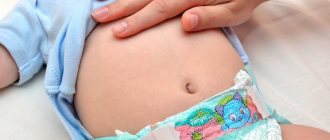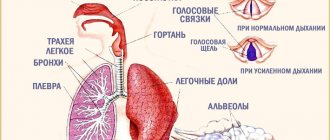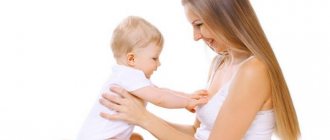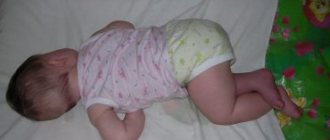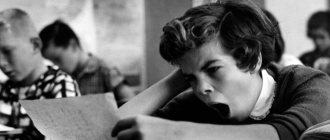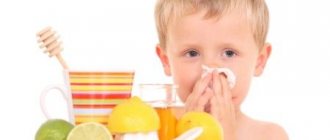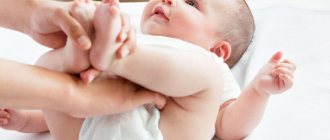The child has frequent bowel movements but no diarrhea and a stomach ache
The appearance of stool, its consistency, smell - all these are the most important indicators of the primary diagnosis of pathologies of the digestive system.
In addition to the consistency of feces, stool frequency is also of great importance in assessing the child’s health. Normally, a child over three years old should have a bowel movement once a day. For infants, this norm is several times higher and can range from 3-4 to 8 times a day (depending on the age of the baby). If the stool has a thin or watery consistency, accompanied by intestinal spasms, tenesmus (false urge to defecate), the child is diagnosed with diarrhea, which most often has an infectious nature. Characteristics of children's stool play an important role in the initial diagnosis
In some cases, it happens that a child goes to the toilet several times a day, but there are no signs of intestinal infections . Sometimes such changes are associated with the characteristics of the children's diet and the abundant consumption of certain foods, but in half of the cases the cause of frequent bowel movements is diseases of the gastrointestinal tract and disturbances in the functioning of internal organs. To understand whether frequent bowel movements in childhood are dangerous, it is important to understand the causes of this condition and know their characteristics.
The child has frequent bowel movements, but not diarrhea
Encopresis “on the shelves”
So, you probably already understand what encopresis is - it is fecal incontinence in children. The problem is delicate and requires immediate solution. It can be organic (impaired muscle tone in the sphincter area) or psychological (reaction to stress, lack of a brain signal about the urge to defecate) in nature. To effectively combat a difficulty, it is necessary to accurately determine its causes.
The main symptoms of encopresis are expressed in regular soiling of clothes day or night . In this case, an awake child may not even notice that he has pooped. He may also not be able to track the “amber” spreading around him at all until it is directly pointed out to him. Spontaneously released feces can be liquid (then it is often confused with diarrhea), or it can come out in the form of a dense mass. Side symptoms are: pain during bowel movements, gas formation, bad breath.
The diagnosis requires decisive action from parents.
Determining the pathological condition (since it is difficult to call encopresis a disease) begins with collecting an anamnesis and establishing its true causes.
Infants, especially in winter, are most susceptible to colds, which are accompanied by a runny nose and snot. A stuffy nose is a serious problem for a baby. Here we will talk about possible ways to treat children's runny nose.
The relationship between bowel movements and nutrition
If a child has bowel movements more than 2 times a day, this condition is considered a deviation from the norm, although it can be considered as an individual characteristic of the body. In newborns and children of the first year of life, the number of bowel movements can reach up to 6-8 times a day (if the child is breastfed) and up to 4-5 times a day if the child receives an adapted milk formula as the main diet. The frequency of bowel movements in infants decreases slightly after the introduction of complementary foods: this usually occurs at 7-8 months. After a year, the child can defecate from 4 to 3-4 times a day.
Frequency of newborn bowel movements
The relative norm for children three years of age and older is 1-2 bowel movements per day. If bowel movements occur more often, it is necessary to analyze the child's diet - perhaps the child eats a lot of foods with a laxative effect, containing fiber or stimulating intestinal motility. All these products must be present in the child’s daily menu, but in limited quantities that correspond to age norms and physiological needs. Foods containing a lot of mucus, which envelops feces and stimulates their evacuation into the rectum, can also cause increased bowel movements.
Products that can affect stool frequency in children of middle and older age groups include:
- some types of fruits and vegetables (zucchini, pumpkin, prunes);
- cereals with a high gluten content (oatmeal, wheat, barley);
- fermented milk drinks (bifidoc, acidophylline, kefir, yogurt, whey).
Bananas, rice, brown bread, pears, rice water, and various types of meat have a fixing effect.
Foods that affect stool
The child began to poop more often
Good evening. Moms, the question is this - the child is 1.2, eats porridge more often than oatmeal in the morning, mashed potatoes, soup, etc. at night. He drinks water, tea, compote. For the last couple of months he has pooped once a day in the morning. For the last week he has been pooping 4-5 times a day, but a little at a time, more often after meals. Not diarrhea or constipation in consistency. I don’t understand why this is so, maybe you can tell me something. Thank you.
Woman.ru experts
Find out the opinion of an expert on your topic
Pustovoitova Elena Yurievna
Psychologist. Specialist from the site b17.ru
Dyachenko Elena Vladimirovna
Psychologist, Gestalt therapist in training. Specialist from the site b17.ru
Arzamastsev Dmitry Valerievich
Psychologist, existential therapist. Specialist from the site b17.ru
Tolmacheva Marina Aleksandrovna
Psychologist, Consultant Coach. Specialist from the site b17.ru
Korotina Svetlana Yurievna
Psychotherapist. Specialist from the site b17.ru
Ekaterina Gomez Suarez
Psychologist, Psychologist-consultant. Specialist from the site b17.ru
Sheludyakov Sergey
Psychologist, Clinical psychologist. Specialist from the site b17.ru
Evgenia Rakhmatova
Psychologist, Online consultant. Specialist from the site b17.ru
Spiridonova Nadezhda Viktorovna
Psychologist. Specialist from the site b17.ru
Antakova Lyubov Nikolaevna
Psychologist, Consultant. Specialist from the site b17.ru
What does poop taste like?
What does poop taste like?
This could be from kefir, or gingerbread like with prunes or honey. You changed something in your diet. Maybe fruits were introduced into the diet that he had not eaten before? If you don’t complain about your tummy and don’t have a fever, try eliminating these innovations from your diet. After a day, everything should return to normal. Anything new should be given a teaspoon a day, then there will be less cause for alarm
Coprofilers can't sleep.
cook rice porridge
Coprofilers can't sleep.
Related topics
This could be from kefir, or gingerbread like with prunes or honey. You changed something in your diet. Maybe fruits were introduced into the diet that he had not eaten before? If you don’t complain about your tummy and don’t have a fever, try eliminating these innovations from your diet. After a day, everything should return to normal. Anything new should be given a teaspoon a day, then there will be less cause for alarm
Maybe he's ovulating
Maybe he's ovulating
Why write such stupidity?
Oh no, not the mamcotems on the forum, you seem to have your own forums for talking about the poop of your tight-haired ones.
What is the question, is the answer. There is no need to create such idiotic topics. How can non-specialists from the forum help? If the author was seriously concerned about the health of her child, she would go to the doctor, and not write another dregs here.
Oh no, not the mamcotems on the forum, you seem to have your own forums for talking about the poop of your tight-haired ones.
I also eat porridge and shit, try the taste, maybe the illness happened to me?
Advice) The doctor said it’s normal, I just want to know the opinions of other people, for example, they advised me to remove foods from my diet, I’ll reconsider what I ate in those days.
Complaint
Moderator, please note that the text contains:
The complaint has been sent to the moderator
The page will close automatically after 5 seconds
Frequent bowel movements due to fermentopathy
This is one of the most common causes of bowel dysfunction in children aged 1 to 7 years. Enzymopathy is a pathological condition in which a child’s digestive tract does not produce enough necessary enzymes (or they are completely absent). Enzymopathy also includes insufficient enzymatic activity, which leads to impaired breakdown and absorption of nutrients and slower absorption.
Signs of enzyme deficiency in children include:
- frequent stools, the consistency of which can vary throughout the day from watery liquid to a dense sausage shape;
- pungent odor of feces (explained by rotting products of incomplete breakdown of proteins, fats and other elements);
- an increase in the volume of detritus in the feces (determined in the laboratory; it may appear externally as a glossy sheen on the surface of the excrement);
- anemia due to incomplete absorption of iron (pallor of the skin, gray skin tone, dryness and peeling of the mucous membranes);
- headaches, weakness, fatigue, decreased performance in children who attend educational institutions.
Children's headaches
Note! Impaired absorption of vitamins, amino acids and mineral salts leads to a decrease in the body’s overall resistance and weakened immunity. The child may often suffer from colds and other infectious diseases (including parasitic infestations).
What to do?
If a child is diagnosed with fermentopathy, it is necessary to determine its type: drug therapy for the pathology and subsequent correction of the child’s lifestyle depend on this.
Table. Types of enzymopathy in children.
| Variety | Characteristic |
| Hereditary | It develops against the background of genetic changes and the complete absence of one or more digestive enzymes. It is detected mainly in the first year of a child’s life and requires lifelong replacement therapy. |
| Nutritional | The cause is chronic eating disorders. Experts believe that the main factor is insufficient protein intake from food. |
For any form of enzyme deficiency, the use of digestive enzymes (Festal, Creon, Mezim) is indicated, but only a doctor should prescribe these drugs, since not all of them are suitable for use in childhood. In case of nutritional disorders, it is recommended to increase the proportion of protein products in the children's diet by approximately 10-15%. This can be meat, cottage cheese, eggs (white), fish, as well as legumes (chickpeas, peas, lentils, beans).
Important! An increase in the volume fraction of protein products in a child’s daily menu is not allowed in case of kidney disease, as this can lead to the appearance of protein in the urine (proteinuria).
How to eliminate the disease
A disorder, such as incontinence, can appear suddenly, or it can begin with minor symptoms and develop into a progressive disease. Its treatment should be comprehensive. Neurotic encopresis is eliminated by a psychologist, and physiological encopresis is eliminated by a surgeon, nutritionist or gastroenterologist. Although due to the difficulty of clearly distinguishing psychophysiology, you will have to visit them all.
A visit to a specialist is a necessary condition for the baby’s recovery.
The well-known doctor, pediatrician E. Komarovsky notes some limitations in the drug treatment of children under 7 years of age, since most drugs are prohibited for use by preschoolers. What is prescribed helps little (phenibut, glycine, electrophoresis). Therefore, for children under 7 years of age, treatment will be mostly non-conservative. Its goals can be formulated as follows:
- correction of the baby’s diet, exclusion of foods that cause gas formation and constipation;
Only proper nutrition!
It is quite possible to develop a clear biological clock in your baby.
Surgical intervention is used when the muscles and nerve endings of the anus have atrophied, medications and psychotherapy do not help, and the child has passed the seven-year mark.
Hyperkinetic diarrhea - what is it?
Hyperkinetic diarrhea is a condition in which intestinal motility increases and accelerated movement of chyme into the rectum occurs. The pathology is often observed in children with diseases of the nervous system, neurological disorders, and psychoses (especially in the acute stage). The frequency of stool in this category of children can reach 4-5 times a day, while the excrement has a normal consistency, and its movement through the intestines does not cause pain or discomfort to the child.
In adolescents, frequent bowel movements can occur with initial and moderate forms of depressive disorders - psycho-emotional disorders manifested by bad mood, impaired thinking, and loss of the ability to experience positive emotions. Parents should monitor their child’s condition very carefully, since prolonged depression is the main cause of teenage suicide.
You can recognize the onset of depression by the following signs:
- the child experiences changes in the functioning of the body (stool becomes more frequent, the urge to urinate at night appears, sleep is disturbed);
- the child tries to spend more time alone, avoids communicating with friends and relatives, loses interest in surrounding events;
- increased absent-mindedness appears (the teenager does not immediately answer the question asked, concentrates his gaze on one point, suddenly changes the topic of conversation).
Depressive disorders in children
To correct the child’s emotional state when the first symptoms of possible abnormalities appear, it is possible to use plant-based sedatives (“Valerian officinalis extract”, “Motherwort”, “Corvalol”). Young children can be given sedatives in the form of dragees and syrups: “Hare”, “Bay-bye”, “Sibiryachok”, “Pomogusha”.
Note! Hyperkinetic diarrhea, accompanied by accelerated motility of the intestinal walls, may be a manifestation of insufficient secretion of thyroid hormones (hypothyroidism) or irritable bowel syndrome. In some cases, frequent bowel movements may occur while taking certain medications, for example, Magnesium Sulfate, antacid medications (Gaviscon, Rennie), or drugs used for chemotherapy protocols (5-fluorouracil).
How often should an artificial baby poop?
Experts say that a newborn on IV (artificial feeding) may not poop as often as a child who eats breast milk. This is due to the fact that mixtures in the intestines of artificial babies take much longer to digest than food that is natural for a newborn.
Features of bowel movement in newborns on IV are as follows:
- For infants on IV, the same formula works as for a newborn feeding on mother’s milk: the number of times the baby eats, the number of times he defecates. But since formula is usually not given to a baby as often as breastfeeding, the artificial baby poops less often.
- With artificial feeding, the stool is harder. This is why an artificial baby may poop irregularly and even suffer from constipation (stool takes longer to move through the intestines and has time to harden).
Irregular or loose stools are much more common among artificial dieters. Due to confusion in the mixtures, the intestines of a child on IV do not have time to adapt to the new composition and react in their own way - with constipation or diarrhea.
Frequent bowel movements due to diseases of the digestive tract
If a child has frequent bowel movements, but there are no signs of diarrhea, the cause may be disturbances in the functioning of the gastrointestinal tract. To diagnose them, laboratory, ultrasound, hardware and instrumental diagnostics are used to assess the appearance and condition of the mucous membranes, measure the acidity of the stomach and duodenum, identify ulcerative and erosive defects of the epithelial membrane and signs of tumor processes.
Ultrasound of the child's abdomen
Crohn's disease
This is a severe systemic lesion of all parts of the digestive tract (granulomatous type), which is of an autoimmune nature. In children, the prevalence of the disease ranges from 1.9% to 7.1%. Symptoms of the inflammatory process depend on its location and can manifest as painful spasms of the intestines and stomach, frequent bowel movements or, conversely, prolonged constipation, bloating, and flatulence syndrome. If the larynx is involved in the pathological process, the child will complain of sore throat when talking and swallowing.
Crohn's disease has a high risk of mortality and almost always leads to disability, so an important stage of primary prevention is regular examinations by a pediatric gastroenterologist, especially if the child is registered with chronic diseases of the digestive system.
Note! Treatment of the disease is always surgical. In advanced forms of the disease, one of the manifestations may be complete fecal incontinence, that is, the frequency of bowel movements can reach up to 6-8 times a day.
Treatment of Crohn's disease
Video: Belousova O Yu Crohn's disease in children
Intestinal inflammation
Inflammation of the mucous membranes of the colon is called colitis. Non-infectious colitis can be the result of atherosclerosis of the vessels through which blood flows to various parts of the intestine, autoimmune disorders, blockage of the branches of the abdominal aorta - one of the largest blood vessels in the human body. If poisoned by toxic substances or taking medications for a long time, a child may develop toxic colitis.
Manifestations of colitis in childhood may include:
- frequent bowel movements (stool may occur after every meal);
- pain in the lower abdomen;
- painful contractions of the intestinal walls (spasms);
- tension in the abdominal muscles caused by bloating and gas movement;
- putrid smell of feces;
- foul breath.
Bad breath in a child
For treatment, medications, nutritional therapy, detoxification therapy, vitamin therapy and physiotherapeutic treatment (after stopping the acute process) are used.
Important! If a child does not receive the necessary treatment for a long time, the mucous membranes may become covered with ulcers. In this case, surgical therapy using partial bowel resection methods may be required. Indications for surgery are also thrombosis and progressive ischemia (oxygen starvation) of the vessels of the colon.
Stages of surgery for laparoscopic anterior rectal resection
Frequent bowel movements in a child are one of the “alarm bells” that may be the first symptoms that the digestive system is not working properly. Ignoring this condition can lead not only to progression of the underlying disease, but also to retarded growth and development, as well as decreased immunity. If the child’s diet is balanced and contains age-appropriate amounts of essential nutrients and nutrients, but stools still remain frequent, it is necessary to contact a pediatric gastroenterologist. Nausea, stomach ache, read on our website.
Video - Intestinal infections
Abdominal pain associated with frequent loose stools (diarrhea) is not an independent disease, but only signs of various pathologies. Under the influence of pathogenic bacteria and viruses entering the intestines, increased peristalsis of the small and large intestines occurs, impaired absorption of water and digestion of food, and accumulation of gases, which causes the appearance of these symptoms. Often, abdominal pain and diarrhea are signs of acute surgical pathology, intussusception, inflammation of the digestive tract, helminthic infestations, and neurogenic diarrhea. But the most common causes of these signs in children are considered to be intestinal infections, food poisoning and acute respiratory infections.
How often does a breastfeeding baby poop?
In a natural child, the process of bowel movement largely depends on how the mother eats.
If a woman follows the basic principles of nutrition, then the baby’s stool is “normal”: frequent, yellow, mushy, without inclusions.
If the mother is addicted to fatty foods, the baby’s intestines have difficulty digesting milk, which is why the baby poops less often and whitish lumps appear in the stool.
When food is rich in carbohydrates, fermentation begins, as a result of which the stool is liquid, foamy, and the tummy begins to swell and growl.
Experts say that the frequency of feces depends on the age of the infants, so a baby at 6 months does not poop as often as a newborn at 2 or 3 weeks. In general, the patterns of bowel movement look like this:
- First 2 days. As already noted, the newborn initially passes dark meconium. During this period, the child poops up to 6 times or more often, everything may depend on the characteristics of the digestive system and its fullness.
- 3-7 days. If the meconium is gone, the newborn may not poop at all. Normal feces appear only after the release of the initial physiological feces. Typically, newborns poop up to three times a day in the first weeks.
- 7-14 days. From the second week, the process of lactation and baby digestion gradually improves. Therefore, newborns poop irregularly, which is a completely normal course of events. Stools are usually frequent and loose, but this is not a mandatory rule.
- 3-6 weeks. From the third week, stool becomes even more frequent and coincides with the number of feedings. However, some children may defecate much less frequently; everything is individual and depends on the characteristics of the digestive processes. If newborns experience facial redness or tears during bowel movements, it is better to consult a doctor.
- 1.5 months. In a 1.5-month-old child, the frequency of bowel movements may decrease; the child may not poop as often as before - once every 3 days. At this time, lactation changes; infants produce other protein substances to break down food.
- 2 months. Around this period, the digestive system of infants “adapts” to feeding. The child may not poop as often or may continue to poop as usual.
- 6 months. The body of a six-month-old child produces a sufficient amount of enzyme substances, which is why mothers at this age introduce complementary foods. As a result, the color of the stool changes (green or brown), the smell, and the stool is now less frequent and harder.
Main reasons
If the child is already 3 years old, the main reason why his health has worsened is overeating or eating unripe fruits. If this is true, the baby’s well-being will return to normal within 24 hours.
But there are situations when infants also have a tummy ache, all this is accompanied by diarrhea and fever. In this situation, you can already begin to worry, since the cause of this condition may be an illness.
The most common diseases that cause symptoms such as diarrhea and stomach pain:
- Inflammation of appendicitis. It is often accompanied by abdominal pain, and in combination with infection can lead to diarrhea. Nausea or vomiting may also be present.
- Pancreatitis. A disease that can quite often be found in children who are already 3 years old. The main symptoms of this disease are: abdominal pain, nausea, diarrhea; the stomach may be very upset, while the face is pale and the mouth feels dry.
- Cholecystitis. May occur in children under 5 years of age. It can also manifest as diarrhea with abdominal pain and vomiting. In addition, the baby may have hyperthermia.
- Dysbacteriosis. Basically, this disease affects children who have not yet turned 3 years old. With this disease, the child has loose stools, and the stomach may hurt after eating. The disease is not uncommon and requires a qualified approach.
- Intestinal infection. It is also accompanied by these symptoms, but in this situation, parents will note that the child’s excrement foams and has an unpleasant odor.
- Dysentery. It is accompanied by pronounced, sharp pain, and the baby will also have diarrhea and abdominal pain.
All of the above diseases are quite serious and require immediate attention to a specialist. Diseases can cause dehydration - this condition also requires mandatory correction.
Important! Dehydration (dehydration) is a serious pathology, which in some cases can even lead to death. If a child starts vomiting with diarrhea, you need to make sure that he drinks as much as possible (the best option is an electrolyte solution), and also make sure that the air in the room is sufficiently humidified.
Encopresis in children is a disease that requires treatment or a condition that can be corrected by psychologists
I remember one boy from kindergarten. Many years have passed, and I still keep his first and last name in the recesses of my memory. And all because he pooped in his underpants during the day's rest. Encopresis in children is a most unpleasant problem for everyone involved and who is simply watching from the sidelines. The child feels awkward in front of everyone (especially if it happens in the garden) and at the same time experiences disgusting sensations, parents feel embarrassed (especially if the baby has already grown to the age of five or six), children are surprised and mocked. All (passive and active) participants in the process are traumatized in their own way. What to do? This publication will tell you about this.
Due to such problems, the child may develop an inferiority complex.
Dysentery
The disease is especially common in the warm season. The reason the infectious agent enters the child's body is the consumption of unwashed foods. Children are especially susceptible to the influence of harmful bacteria due to their underdeveloped immune system. If your baby has eaten several unwashed fruits during the day, by the evening he may well feel sick. Children under 3 years of age are most susceptible to pathogenic bacteria.
The cause of the disease can also be unfavorable conditions - poor personal hygiene, untimely hand washing, drinking contaminated water and dirt in the room. In such cases, pathogenic microbes enter the digestive tract and cause disruption of its functions. Diarrhea and cramping pain in the abdomen occur. The incubation period of dysentery lasts from 1 to several days.
Main symptoms of the disease:
- Fever;
- pain in the iliac abdomen;
- feces with mucus and blood streaks;
- severe diarrhea;
- green liquid stool;
- rumbling in the stomach;
- vomit.
With dysentery, there is an acute onset of the disease, which causes very frequent loose stools. With diarrhea and abdominal pain, the child may have a false urge to defecate, which leads to rectal prolapse. Vomiting occurs, severe intoxication of the body, and general weakness is observed.
Treatment of the disease comes down to strict adherence to bed rest and taking medications prescribed by the doctor. Treatment with antibacterial drugs is carried out, measures are taken to eliminate dehydration in the child, and a special diet is prescribed. Treatment can take place at home or in an outpatient setting.
Parental experience
Zhanna, child 4.5 years old:
“My youngest son had the following problem: it was painful to go to the toilet because of hard feces, he began to endure and “suffered” constipation. At first I just restrained myself, then it seemed like I didn’t want to, but what had accumulated came out on its own. I probably noticed it in time, talked to my son, and found out the reason. With the help of guiding questions, he was able to explain what was happening to him. After that, I said that I would specially prepare food for him that would not make it painful to go to the toilet. He believed, and everything returned to normal without doctors.”
Dina, child 5 years old:
“Six months ago we were in the hospital with a diagnosis of encopresis. It helped (and we were happy) only for a while. The problem has now returned again. Doctors say that the immune system is weak.”
Valentina, child 4 years old:
“We were examined by a gastroenterologist, had an ultrasound, and are being treated at a neuropsychiatric dispensary. But I don’t believe that it will help, since Maxim is very uncommunicative. It's hard with him. The doctor reassures us that everything will pass with time.”
So, you probably already understand what encopresis is - it is fecal incontinence in children. The problem is delicate and requires immediate solution. It can be organic (impaired muscle tone in the sphincter area) or psychological (reaction to stress, lack of a brain signal about the urge to defecate) in nature. To effectively combat a difficulty, it is necessary to accurately determine its causes.
When is the cause not a disease?
Diarrhea and abdominal pain in a child are not always symptoms of serious illnesses.
Similar conditions may occur in the following cases:
- Climate change. If you suddenly change the child’s usual environment, this may well cause unpleasant symptoms.
- Worms. Also a common option, if there are parasites in the body, the baby may feel a sharp deterioration in health: diarrhea appears, as well as pain in the umbilical region.
- Frequent stressful situations can also cause similar symptoms, then the baby needs to consult a psychologist.
Abdominal pain and diarrhea, nausea - all these are symptoms that cannot be ignored. You need to contact your pediatrician as soon as possible to make a correct diagnosis. Only after this can you begin therapy. Experts strongly do not recommend self-medication.
Pathologies that cause constipation
Unfortunately, sometimes a newborn cries before pooping for very good reasons. Most often this is caused by congenital diseases that require immediate examination by specialists and further treatment. Therefore, when you cannot get rid of the symptoms of constipation on your own, you need to urgently consult a doctor.
Diseases leading to constipation are rare. But still, sometimes they become the cause of children's tears. These include:
- Dolichosigma is an unnatural elongation of the sigmoid part of the intestine. Defecation is difficult as a result of many kinks and great pressure of the intestine on itself, as well as on the rectum.
- Hirschsprung's disease is characterized by disturbances in the functioning of the nerve endings of the intestine. This leads to the fact that some areas of the intestines cease to function correctly and are constantly in a state of spasms and pain.
- Lactase deficiency is a disease that is caused by a deficiency of enzymes or their absence. In this case, the newborn is susceptible to changing from constipation to diarrhea and vice versa.
First aid for poisoning
There are situations when you should not hesitate to see a doctor. You should call an ambulance in the following cases:
- The appearance of acute pain that persists for several days;
- frequent urge to have bowel movements, pain during bowel movements, risk of dehydration;
- temperature rise to 39 degrees;
- constant urge to vomit;
- convulsions;
- bloody impurities in the stool.
In such situations, self-medication is strictly prohibited, as it can be life-threatening. Before starting treatment, it is necessary to establish the causes of such symptoms.
It is important to begin first aid as quickly as possible. Severe, continuous vomiting and diarrhea, body temperature above 38 °C are a signal to call a doctor. First aid consists of gastric lavage, decontamination of toxins, and elimination of dehydration.
- Gastric lavage. Give the poisoned person to drink 1-2 liters of clean water and induce vomiting by pressing on the root of the tongue. Continue until the stomach is completely cleansed.
- Decontamination of toxins remaining in the gastrointestinal tract. When the stomach is clean, give activated carbon at the rate of 1 crushed tablet per 10 kg of the victim’s weight. Instead of coal, sorbents Smecta, Polysorb, Enterosgel, Polyphepan are used. Take up to 4 times, with an interval of 15 minutes, with boiled water.
- Eliminate dehydration. An hour after taking the last portion of the sorbent, replenishment of lost fluid begins. You can drink weak sweet tea. Powders for dissolution in water - Regidron, Gastrolit, Tsitraglyukosan - contain salts, glucose, restore the water and salt balance of the body.
Create comfortable conditions for the poisoned person. Lay on your left side, cover with a blanket, warm your feet with heating pads. Do not immediately give fixing medications and decoctions. They interfere with the cleansing of the body.
Reasons for violation
Clinical descriptions of cases of fecal incontinence allow us to identify many causes of its occurrence. Among them, the main ones are psychological and physiological, as well as their mixed variants.
- Psychological reasons:
- unsuccessful, inept, untimely potty training of a baby can cause inhibition of the natural urge to empty the bowel and atrophy of the nerve endings in the sphincter area. Parents who blame the baby for not noticing how he peed or pooped risk aggravating his feelings of guilt and intensifying the manifestations of the disease;
Everything has its time!An established routine for going to the toilet can prevent you from going to kindergarten.
Sometimes mothers “forget” about their older children, devoting all their attention to the new family member.
The diagnosis can be caused by a number of different reasons.
An analysis of all the causes allows us to distinguish 2 types of encopresis : true , caused by psychological or physiological trauma, and false , related to chronic constipation. In the second case, parents often pay attention to the absence of stool for several days and the unnatural thickness of the child’s stool.
Every mother sooner or later encounters hysterics in her child. The spectacle is not for the faint of heart. Many parents are lost and do not know how to calm their child. The mother of three children will tell you how she dealt with the whims of her children, share her invaluable experience, and give advice. Find out more...
Viferon suppositories are a new generation drug that can be used for children from the first days of life. Indications for use, dosage and contraindications can be found here www.o-my-baby.ru/zdorovie/lekarstva/svechi-viferon.htm.
What can you do?
If similar symptoms appear and there is a fever, you need to call a doctor.
Before the doctor arrives, parents should under no circumstances:
- press on the stomach or massage;
- put heating pads on;
- completely exclude food;
- give pharmacological agents.
If a child has a stomach ache and diarrhea, then before the doctor arrives, you must do the following:
- ensure complete peace;
- to prevent dehydration, give water, or even better, Regidron solution;
- give adsorbents - white coal, Enterosgel, etc. – they will remove toxins, and the child’s abdominal pain should decrease;
- monitor the general condition and nature of the excrement, measure the temperature - all this is necessary in order to later describe the full picture to the doctor.
Basically, for non-serious pathologies, after taking the measures described above, the baby feels better. If nothing happens within 3 days, the diarrhea does not go away, in which case you will have to resort to more serious measures.
Possible complications
Diarrhea and frequent vomiting disrupt the water-salt balance in the body and cause psychological disorders: nervousness, apathy. Alarming symptoms that require immediate medical attention are:
- vomiting attacks that do not stop after all the measures taken;
- loss of skin elasticity, appearance of cracks on the lips;
- strong unquenchable thirst is a sign of fluid deficiency (dehydration);
- lack of relief after taking medications;
- convulsions;
- loss of consciousness.
What medications can be offered to a child?
Below is a list of pharmacological agents that can be given to children, but strictly under the supervision of a doctor and calculating the dosage:
- Pancreatin – if the child has pancreatic insufficiency;
- Bifikol, Lactobacterin - in case of dysbacteriosis;
- Citroglucosolan, Regidron - prescribed for diarrhea if it is accompanied by dehydration.
Important! If your child has a stomach ache and diarrhea, this may be due to an infection. In this case, antibacterial agents will be required, but they must also be prescribed by a doctor; most likely, the child will have to be hospitalized in the infectious diseases department.
Review of effective drugs
| Medicine | Available in the form | Mechanism of action | Dosage in children |
| Linex | Capsules | A probiotic that normalizes the quantitative composition of intestinal microflora. Very often, after antibacterial drugs, a revolution occurs in the large intestine. Pathogenic microorganisms actively multiply, displacing beneficial bifidobacteria and lactobacilli. Linex contains all the necessary microorganisms and normalizes intestinal disaster. | Prescribed 1 capsule 3 times a day for children under two years of age, and older ones can be given 2 capsules. |
| Bifidumbacterin | Powder in bags | The drug inhibits the growth and reproduction of pathogenic microbes, and activates weak intestinal microflora. | Diarrhea associated with dysbacteriosis. Children are given 1 dose 3 times a day, older ones - 2 - 3 times. Starting from a year, the dosage is similar to adults - 5 doses 3 times a day. |
| Hilak Forte | Drops (great for treating little ones) | The medicine acts strictly in the intestinal lumen, inhibiting the growth and reproduction of pathogenic microorganisms. Hilak Forte has another big advantage - it accelerates the absorption of food and beneficial microelements. | Up to 2 years of age, it is recommended to take 15 drops diluted in a glass of water three times a day. From 2 to 12 years, the dosage is increased to 30 drops. Older children, like adults, can take 40-60 drops 3 times a day. |
| Imodium | Capsules | Active ingredient: Loperamide. It has an inhibitory effect on opioid receptors, thereby slowing down intestinal motility. The drug is prescribed only by a doctor to prevent overdose and unwanted side effects. | Children after 3 years and not earlier take one capsule, and adults take two capsules. The frequency of administration depends on the speed of onset of positive dynamics. |
| Loperamide | Tablets, syrup | Relieves abdominal cramps, eliminates diarrhea syndrome. The medication slows down intestinal peristalsis and normalizes sphincter tone. The stomach stops twisting, the symptoms quickly regress. | Young children take syrup (1 mg per 10 kg of body weight). For older people, the dosage is increased to 2 mg per 10 kg. |
| Enterobene | Tablet medicinal product | Another trade name is Loperamide. Has the same properties as the latter. | Children over 8 years of age are allowed to take 1 tablet. Adults are treated with two capsules. |
| Levomycetin | There are a huge number of forms of medication (injections, tablets, powders) | Antibacterial drug for the treatment of intestinal infections. It suppresses the activity of many bacteria. | The dosage of the antibiotic is selected individually in each case. |
| Metronidazole | Suspension, tablets, powder, injection vials | A specific drug that is used to treat diseases caused by protozoa. | Metronidazole is prescribed to older children, 1 tablet 2 times a day. The course of treatment should not exceed 4 days. |
| Amoxicillin | Different release forms | Refers to semisynthetic penicillins. Used to treat infectious diseases. Has a wide spectrum of action. | The dose is determined depending on the severity of symptoms, the presence of indications, and contraindications to therapy. |
| Activated carbon | Black tablets | Fights toxins, quickly brings intestinal motility back to normal. Prescribed for food poisoning and various types of toxic effects. | The tablet is taken per 10 kg of body weight. Child 20 kg - 2 tablets. |
| Smecta | Powder | When the medicine enters the gastrointestinal tract, it collects all toxic substances on its surface. The powder is easily removed; contraindications and complications are rarely observed. | The course of treatment is 3-7 days. Allowed from birth. Prescribed 1-2 sachets 3 times a day. |
Diet: is it necessary?
Dietary restrictions cannot eliminate the disease, but you can alleviate the general condition of your little patient.
We completely exclude from the diet:
- carbonated drinks;
- sweets;
- baked goods;
- fried or fatty foods.
All of the above products can only aggravate the general condition of the patient. Meals should be fractional, the child should be fed 5-6 times a day.
The following dishes are ideal:
- boiled or steamed chicken breast;
- low-fat broth - also for chicken;
- boiled rice;
- You can drink tea with a little sugar.
If your child is breastfed, then his mother should follow this diet; there is no need to change the usual frequency of breastfeeding. Be sure to monitor your water balance, since dehydration is a serious problem, which causes death in 10% of cases.
cry from the heart, we've been pooping for 7 years
There was a similar problem. In the end, it seems to have resolved, as you just reminded me. They examined me, there was lactose deficiency and allergies, oddly enough, but these things have disappeared now too.
What we did. Corrected nutrition. I remember that I removed almost all the vegetables, fruits and dairy. I added little by little and watched. But they lived on a very limited diet at that time, so what to do?
Before school, be sure to spend 10 minutes in the toilet. Whether you want to poop or not, it doesn’t matter, you still sit. Better to poop. I talked with the teachers, but without describing in detail what was happening, but simply asked that they be allowed to go to the toilet upon request and sometimes reminded. At the same time, I found out what the situation is with the toilets there, whether there are cubicles, etc.
What we did. Corrected nutrition. I remember that I removed almost all the vegetables, fruits and dairy. I added little by little and watched. But they lived on a very limited diet at that time, so what to do?
Prevention of diarrhea and abdominal pain in children
Parents, of course, are not immune from encountering these kinds of symptoms, but knowing and following certain rules will definitely reduce the risk of encountering these problems to a minimum:
- drinking exclusively boiled or bottled water;
- careful heat treatment of food products (especially meat) and compliance with the conditions and terms of their storage;
- the nursing mother follows the doctor’s recommendations on nutrition and adequately introduces complementary foods to the baby;
- introducing a balanced and healthy diet into your lifestyle:
- five small meals;
- exclusion of carbonated drinks, fast food;
- reducing fatty, spicy and fried foods in the diet;
- give preference to food cooked in a double boiler;
- refusal to eat questionable berries and mushrooms;
- teaching the child to maintain personal hygiene (mandatory hand washing before eating, etc.);
- In case of illness, follow all doctor’s recommendations to avoid exacerbations:
- exclusion of cereal products from the diet for celiac disease;
- switching to lactose-free mixtures for lactase deficiency;
- for chronic inflammatory diseases of the gastrointestinal tract, adherence to the recommended diet, especially strictly before the autumn-spring periods;
- the use of herbal medicine for gastropathology and digestive problems.
What traditional methods are used?
Some parents try not to give their children pharmacological drugs - they believe that it is harmful. In this case, folk methods will come to the rescue, thanks to which you can also improve the condition if the child has diarrhea and a stomach ache. All the recipes described below have an anti-inflammatory as well as a powerful antiseptic effect.
- Mint, blueberries, chamomile - just two teaspoons each, brew in 1 liter of water, let brew for 15 minutes. Take 120 ml 4 times a day, before meals.
- Blueberries, rhizomes of snakeweed, bird cherry - just a teaspoon, brew in 0.5 water, let it brew for 30 minutes, strain. Drink 0.5 cups per day before meals.
- Alder fruits, snakeweed rhizomes - brew everything in 1 liter of boiling water, simmer in a water bath for 10 minutes. Take 0.5 cups 4 times a day, before meals.
The following recipes are also popular:
- If a child has a stomach ache and diarrhea, you can prepare a decoction of starch. Thoroughly shake 1 teaspoon of starch in 0.5 glass of water. If desired, you can add sugar so that the child is more willing to drink the broth. Drink 2 times a day. Used for diarrhea, it is considered a good fixative. It also coats the walls of the gastric mucosa.
- If your baby has a stomach ache, try a decoction of pomegranate peel. Grind it first, take 1 tsp. powder, add 250 ml of water, then simmer for 15 minutes. Take 1 tbsp. decoction 3 times a day.
Gastroenteritis
When there is diarrhea and stomach pain, the cause of this condition may be gastroenteritis. With this disease, acute inflammation of the mucous membrane of the stomach and parts of the small intestine occurs. With gastroenteritis the following are observed:
- Aching pain in the abdomen;
- vomiting and nausea;
- weakness;
- liquid feces in “flakes” mixed with mucus.
As a rule, gastroenteritis develops against the background of other ailments of the digestive system. With diarrhea, parasitic infections, giardiasis, pancreatitis, and cholecystitis can be diagnosed. All these diseases are accompanied by the same body reactions. If a child gets sick, parents should call a pediatrician to prevent the development of dangerous complications.
( 1 rating, average 4 out of 5 )
Source

